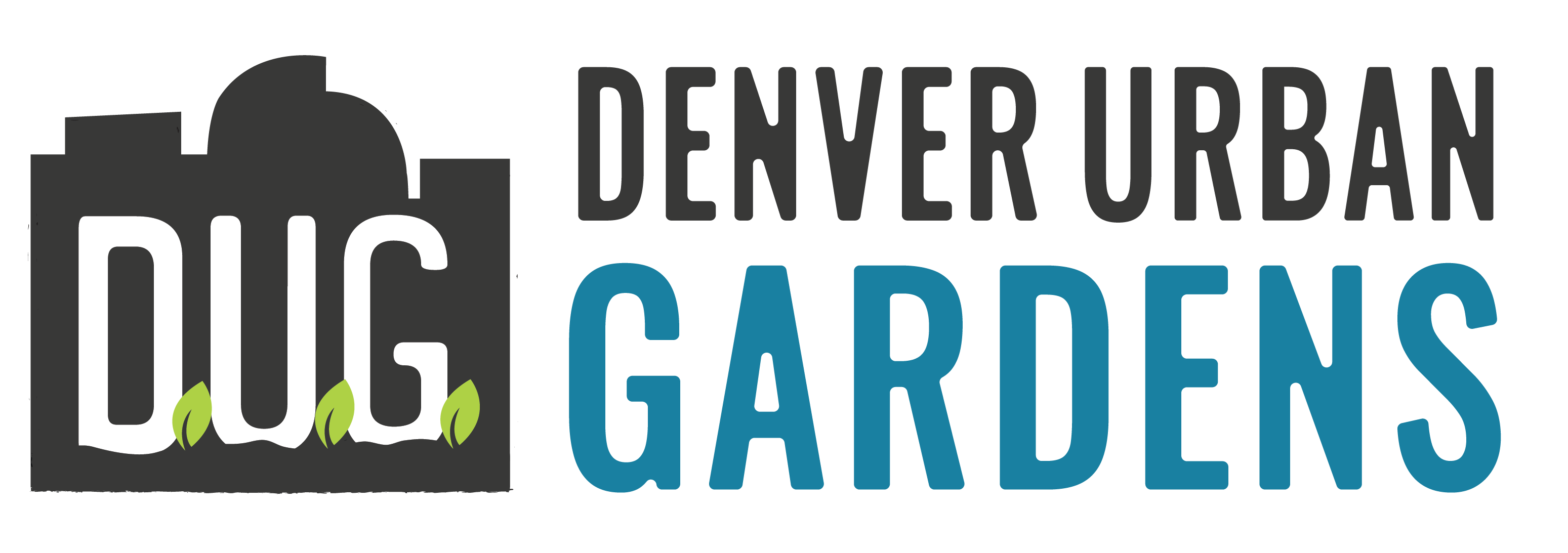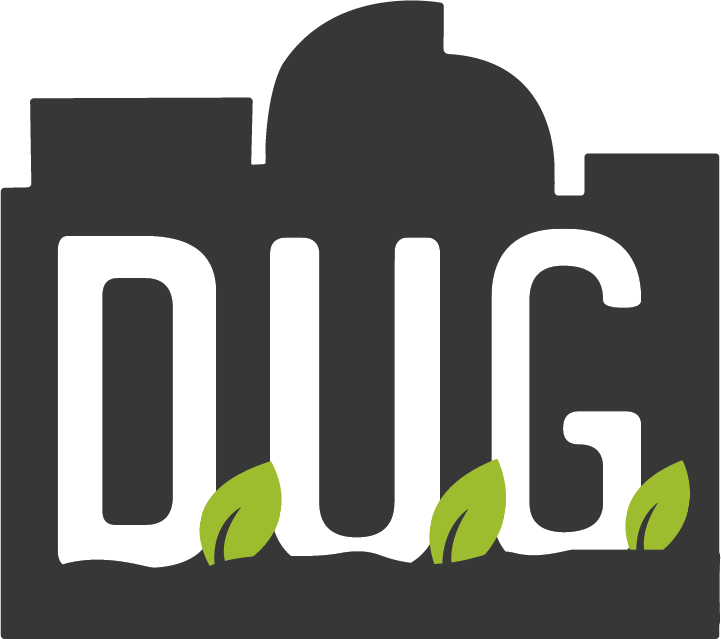Community gardens are green oases in an urban environment. The perfect place for bees and other pollinators to find food and shelter.
Our partnership with Alévole aims to build awareness around the importance of green urban spaces as habitat to promote biodiversity that supports the vital work of pollinators, and other beneficial insects, as part of more sustainable cities and food systems.
Alvéole’s mission is to reconnect people with nature in cities by making people fall in love with bees. Working with honeybees as ambassadors to build ecological awareness and their connection with our agricultural system. Falling in love with honeybees allows us to open our eyes to the many bees and other pollinators in our environment. In Colorado, there are 946 native species of bees, out of more than 20,000 around the world.
We chatted with Tasha Wilson, Alvéole Beekeeping Team Manager here in Denver, about their work and the partnership with Denver Urban Gardens. This interview had been condensed.
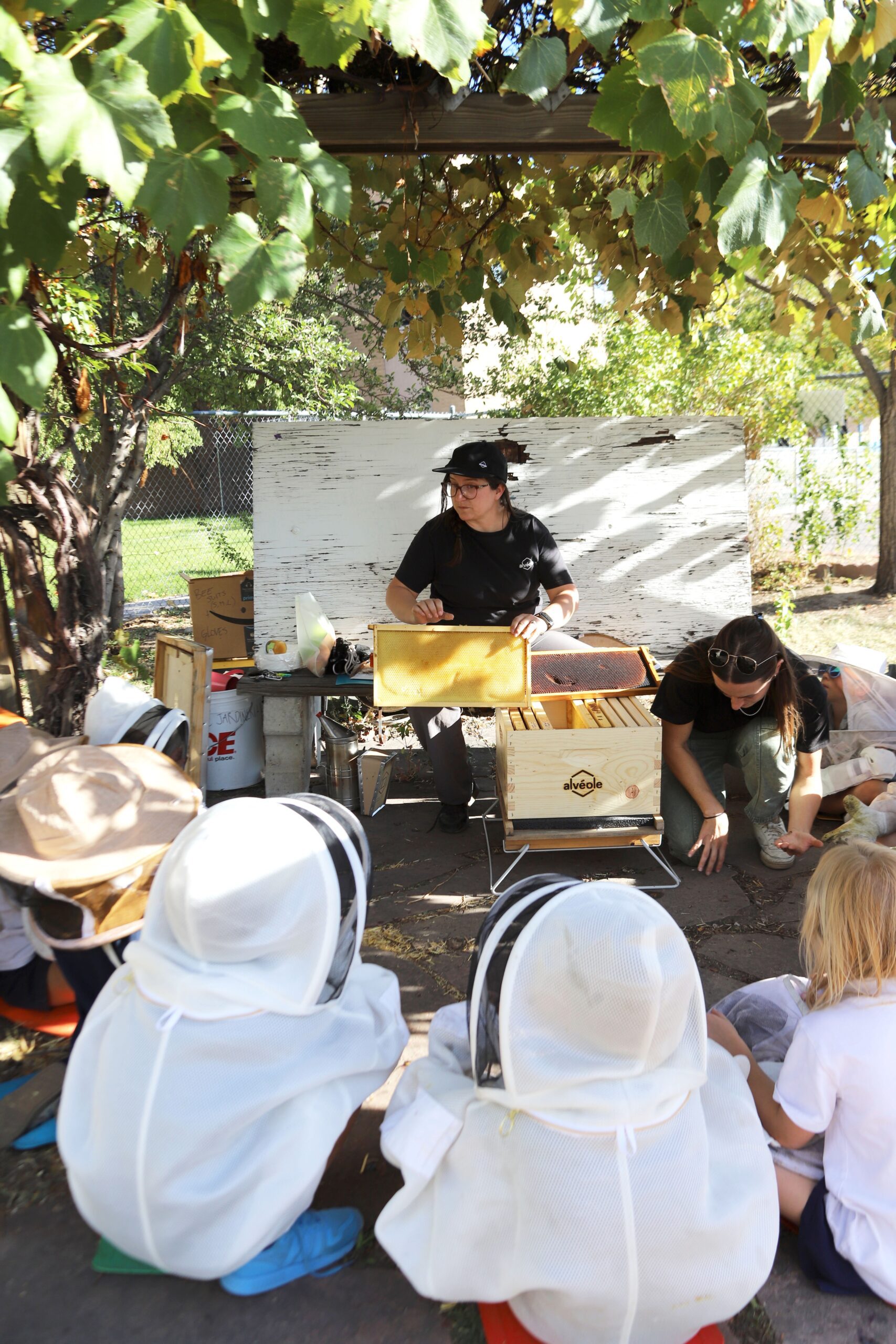
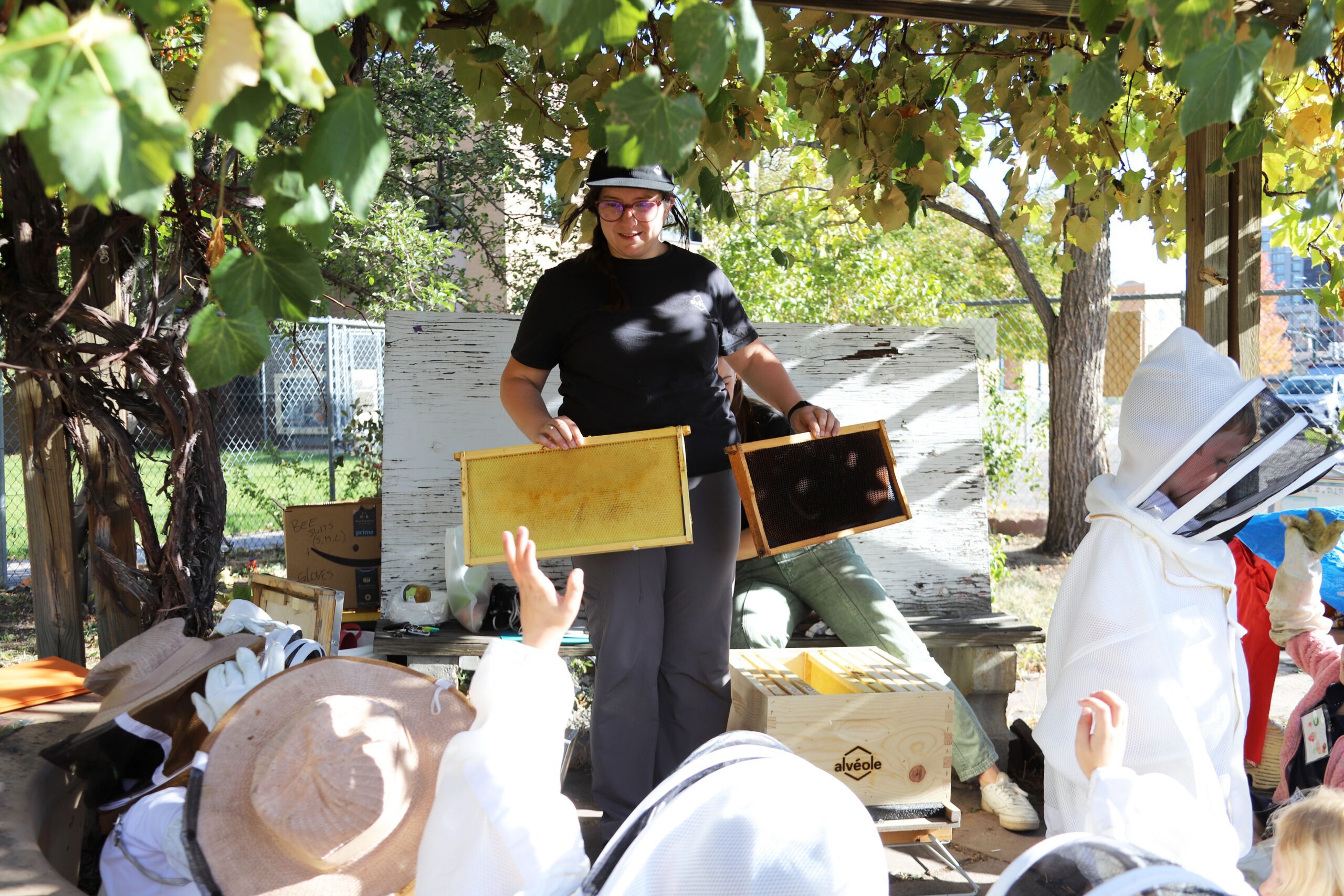
How did the DUG + Alvéole partnership begin?
In 2021, Alvéole started working with 1% for the Planet and using their standardized system and support to allow all of our cities across North America & Europe to partner with environmental organizations that were local to them. We value doing meaningful work and this partnership allows us to make meaningful community impacts with one of the best Denver environmental organizations.
DUG is greening our urban environment and adding to the biodiversity helping protect habitat for our pollinators. Many urban gardens are tucked in spaces that were previously underutilized. We do the same thing, we tuck beehives in underutilized urban locations, so our missions align.
The Denver Alvéole team has been a constant in many of our events, could you speak about this part of the partnership?
We work to connect people with nature through bees and so they will protect our environment in their daily lives. Participating in DUG events through volunteering has offered us opportunities to connect with people in a wide variety of ways . Our 1% for the Planet partnership requires us to donate 1% of our revenue to an environmental non-profit through either monetary donation, marketing or volunteer in-kind donation. Our volunteer efforts have included hosting educational kiosks and volunteering at the Garden Leader symposium and Fall Plant Sale. We also helped plant the food forest at The Urban Farm, volunteered at the Nome Park Community Garden workday, and supported the garden built at Earl Lee Evans Sensory Garden at FireFly Autism.

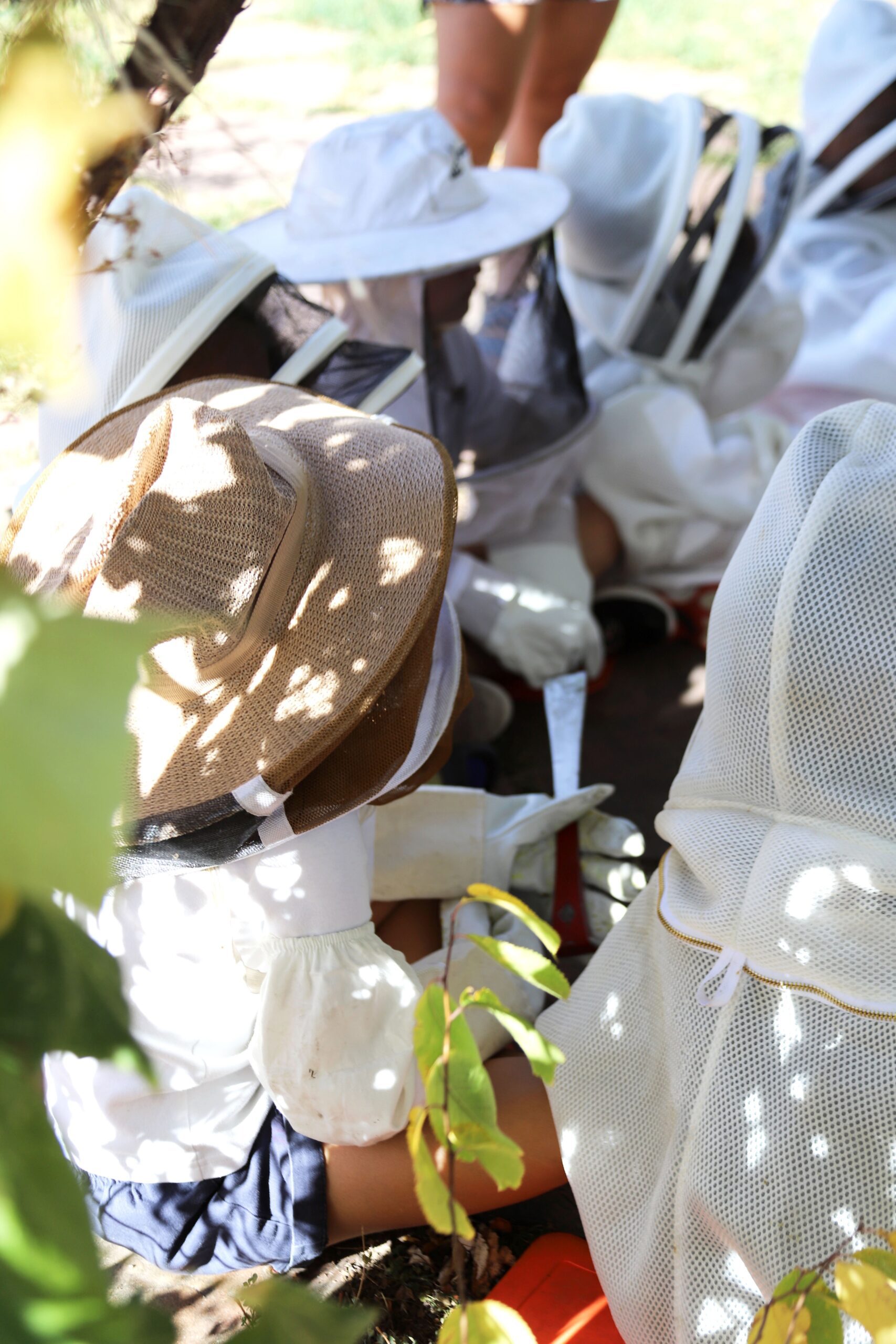
Education is part of your mission, could you share how that has manifested with DUG?
We have provided educational opportunities with our workshop offerings at the three DUG gardens that have adopted beehives. We have engaged with the broader community at tabling events through honey tasting and live bees. We also did a virtual beekeeping 101 class for DUG’s community, and now during fall we are giving workshops for the garden clubs at three elementary schools.
Education is part of who we are at our core. And we work with honeybees as our ambassadors and our educational partners. Honeybees open up our eyes to the importance of all bees. Once you learn to recognize a honeybee in the environment you’ll start to recognize more and more bees, our wild native bees, a huge world of bees we were not connected to before. It reminds us that we need to protect the environment for all bees, not just one bee.
